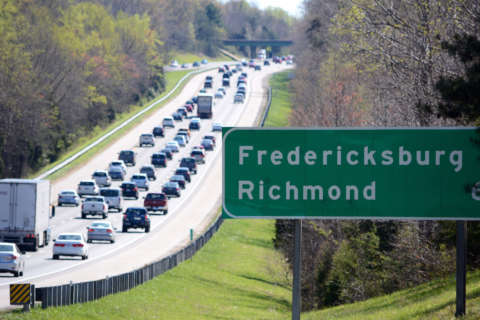Virginia is on track to pass several significant criminal justice reforms through legislation passed Friday in the House of Delegates.
The reforms could lead to fewer kids getting tried as adults, raise the felony larceny threshold and prevent kids from getting arrested for disrupting class.
The House unanimously supported a change that would raise the minimum age for automatically transferring or considering transferring charges from juvenile to adult court. The legislation would increase the age from 14 to 16.
Local prosecutors would retain the right to ask a court to transfer other cases involving 14- to 18- year-olds from juvenile to adult court based on the age of the defendant, seriousness of the offense, any previous charges and other factors.
More Virginia General Assembly coverage
- Virginia House approves series of gun-safety bills
- Va. House passes education bills on transgender students, college assault policies
- Virginia House approves significant absentee voting expansion
- Virginia’s long path to ratifying the ERA
- Cursing in public could no longer be a crime in Virginia
“The current process for certifying youth to be tried as adults is too fast to obtain sufficient information to truly determine if trial as an adult is helpful or appropriate,” said Del. Elizabeth Guzman, D-Prince William County.
In many cases, court services would now complete a report about the defendant over several weeks. Prosecutors would then need to consider the report before deciding whether to move forward with the request that a judge move the case to adult court.
“It’s imperative that juveniles are given the opportunity to go through rehab programs before being sent to prison,” Guzman said.
Another House-approved bill would allow judges sentencing any juvenile offenders in adult court to sentence them to less than a mandatory minimum sentence or to suspend part of the sentence.
Currently, those exceptions apply only to cases in which the child has been abused, trafficked or neglected.
The court would also be required to consider the child’s adverse childhood experiences, early childhood trauma, interactions with a child welfare agency, and the differences between juvenile and adult offenders.
The House also voted 58-40-1 for a bill that would raise the threshold for grand larceny from $500 to $1,000. If it passes in the Senate, thefts under $1,000 would become misdemeanors.
In what would be another significant change, the House voted 61-37 in favor of a bill that would prevent the arrest of students for disorderly conduct at school or during school activities. Schools could then discipline students, if needed, rather than a student getting charged with a crime.







